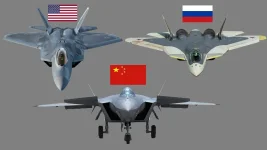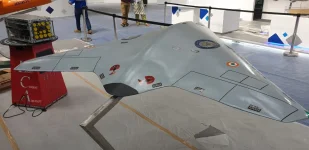- Views: 2K
- Replies: 29

In a statement that highlights the challenges faced by India's indigenous defence industry, Vice Admiral Krishna Swaminathan, Vice Chief of the Indian Navy, announced Tuesday that the US-made MQ-9B Reaper drones are better suited to the Navy's maritime surveillance needs than the domestically developed TAPAS UAV.
The MQ-9B Reaper, produced by General Atomics, boasts extended range and endurance capabilities crucial for monitoring vast oceanic expanses, a key requirement for the Indian Navy. This contrasts with the TAPAS (Tactical Airborne Platform for Aerial Surveillance) drone, developed by the DRDO, which has reportedly fallen short of the Navy's operational expectations.
"The TAPAS drones in its current form do not entirely meet our requirements," Vice Admiral Swaminathan stated at a press conference preceding the Navy's 'Swavlamban' seminar on innovation and indigenization. He emphasized the need for a platform capable of sustained surveillance over wide maritime areas, a capability where TAPAS appears to have faltered.
This assessment comes on the heels of a significant $4 billion deal finalized last week between India and the US for the procurement of 31 MQ-9B Predator drones. This acquisition will see 15 units allocated to the Indian Navy, with the Army and Air Force each receiving eight.
While acknowledging the "very good capability" of TAPAS, the Vice Chief admitted that it requires further refinement to align with the Navy's specific needs. He stressed the necessity for multiple versions and variants to achieve full combat capability.
Despite the shortcomings of TAPAS, the Vice Chief expressed hope for its future development, stating, "We hope the next version of TAPAS will be much better … We look forward to that day when we can make such drones like the MQ-9B and maybe TAPAS is the right way to go." He confirmed that the Navy will continue to provide feedback to DRDO to aid in the ongoing development of the TAPAS program.
This situation underscores the complex balance between promoting indigenous defence production and fulfilling immediate operational requirements. While India strives for self-reliance in defence technology, the need to address pressing security concerns, particularly in the context of increasing Chinese naval activity in the Indian Ocean Region, necessitates the acquisition of proven and readily available systems like the MQ-9B Reaper.



